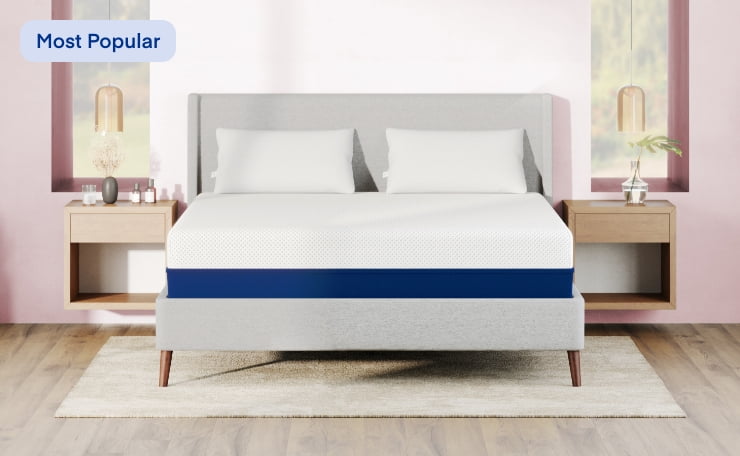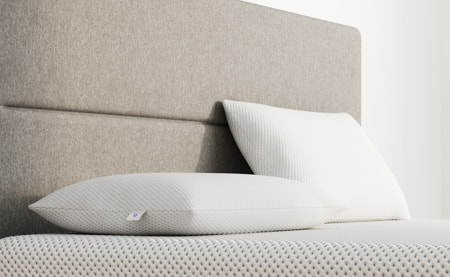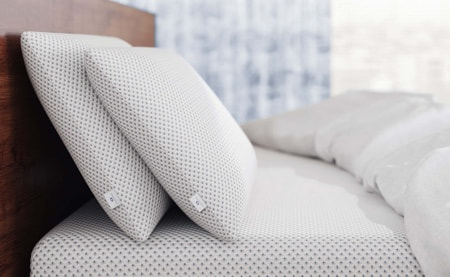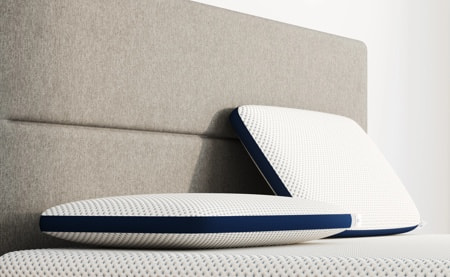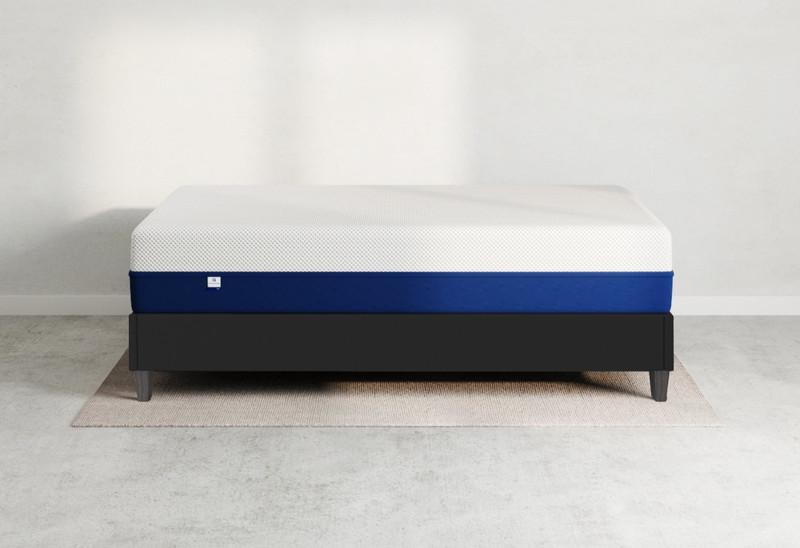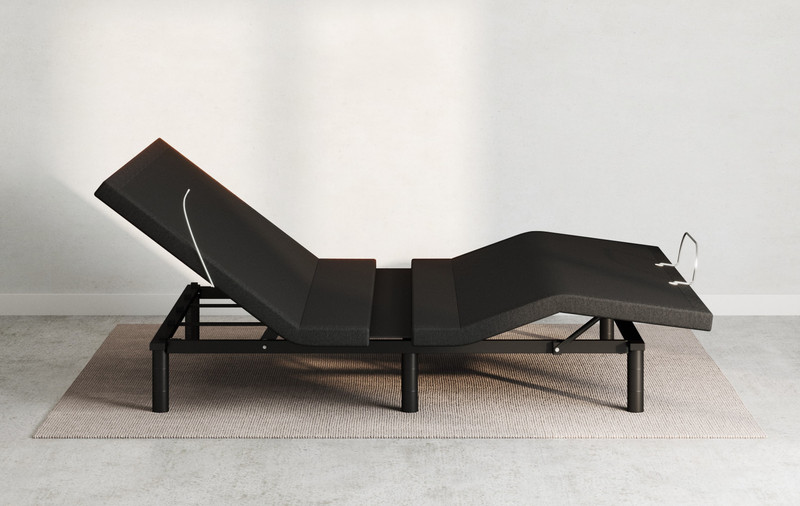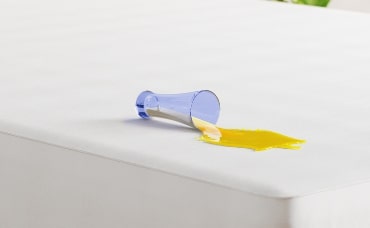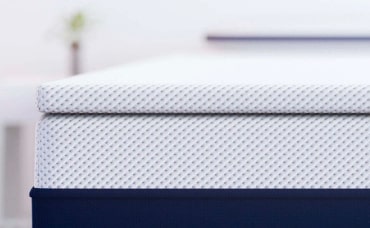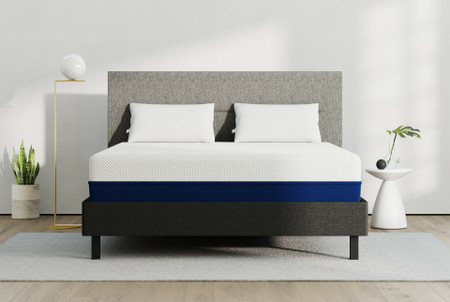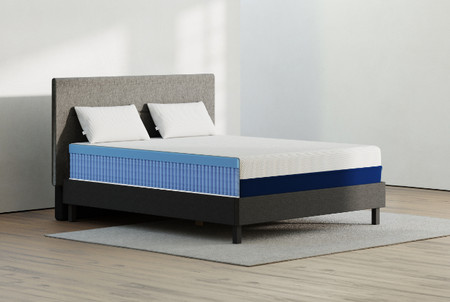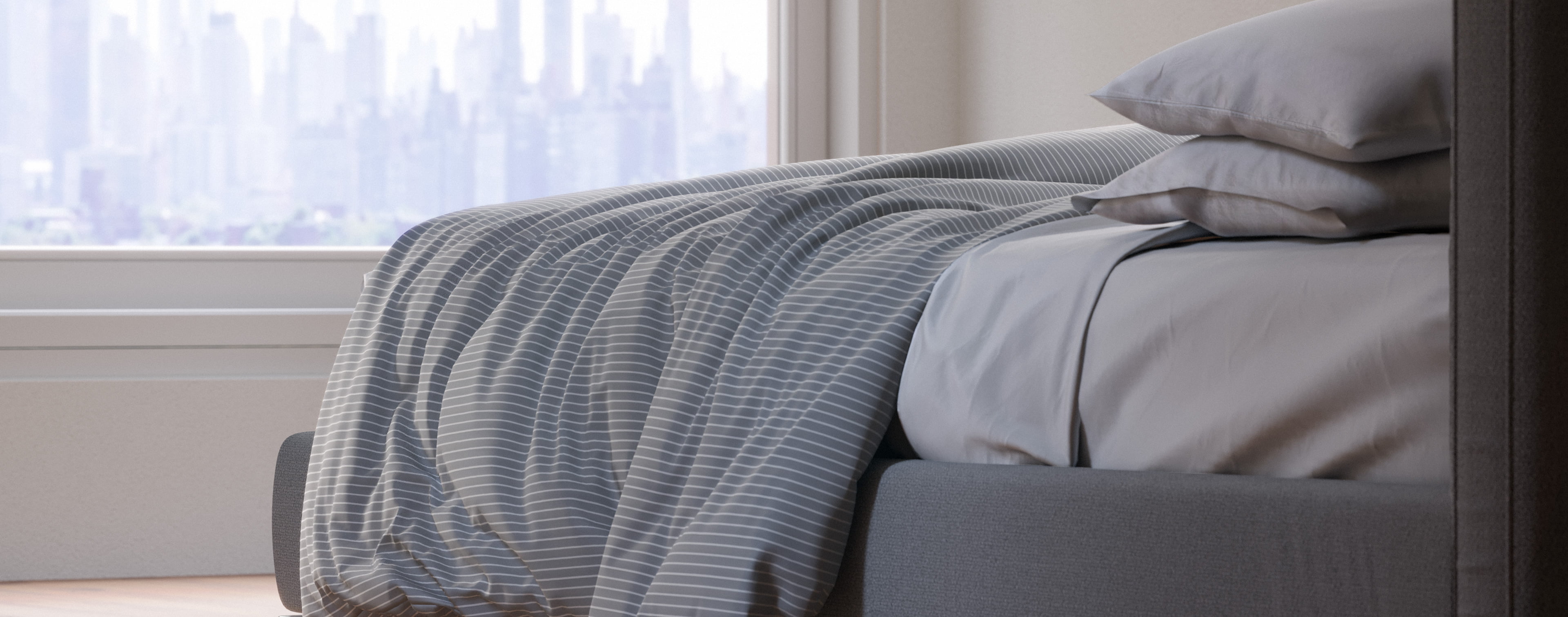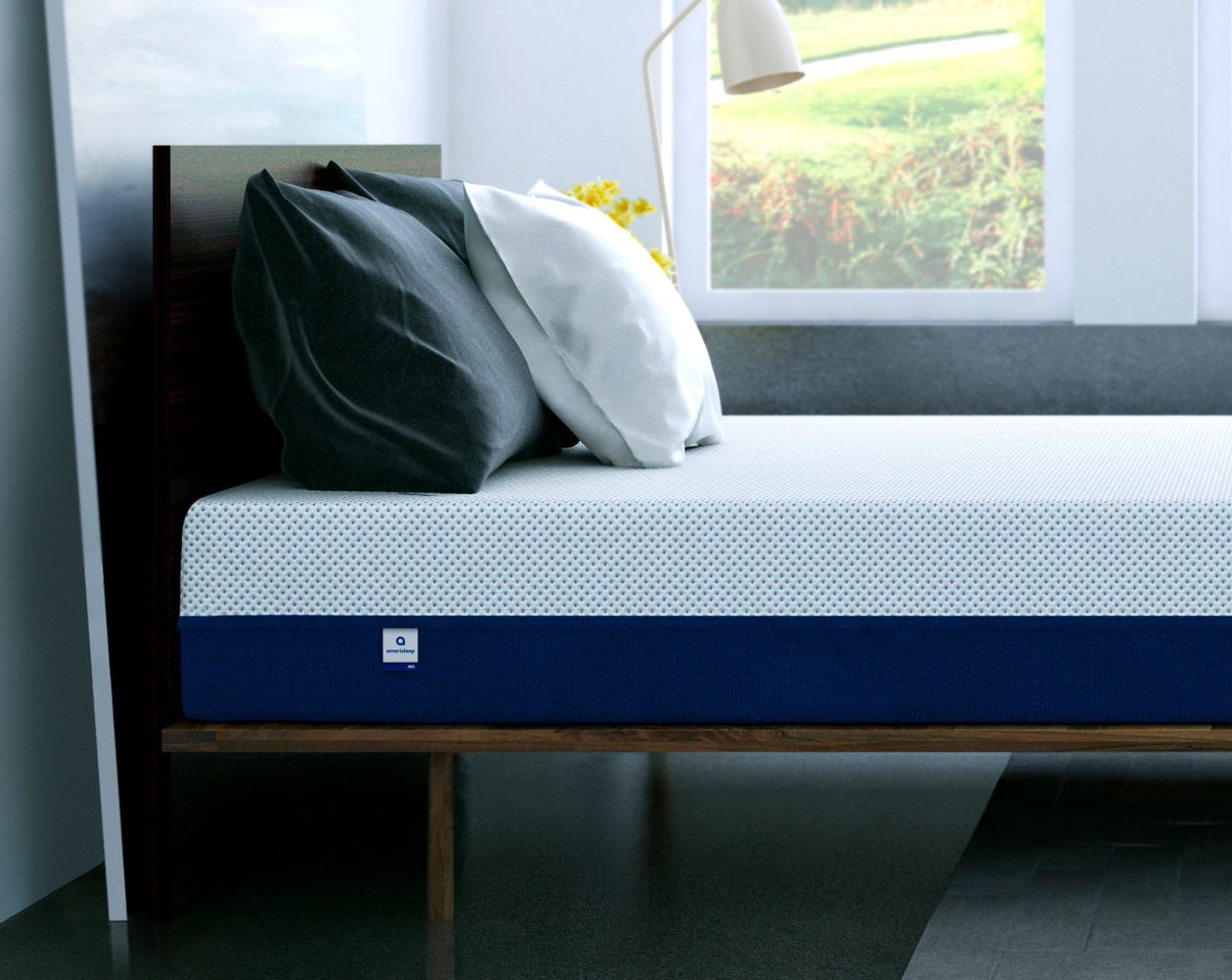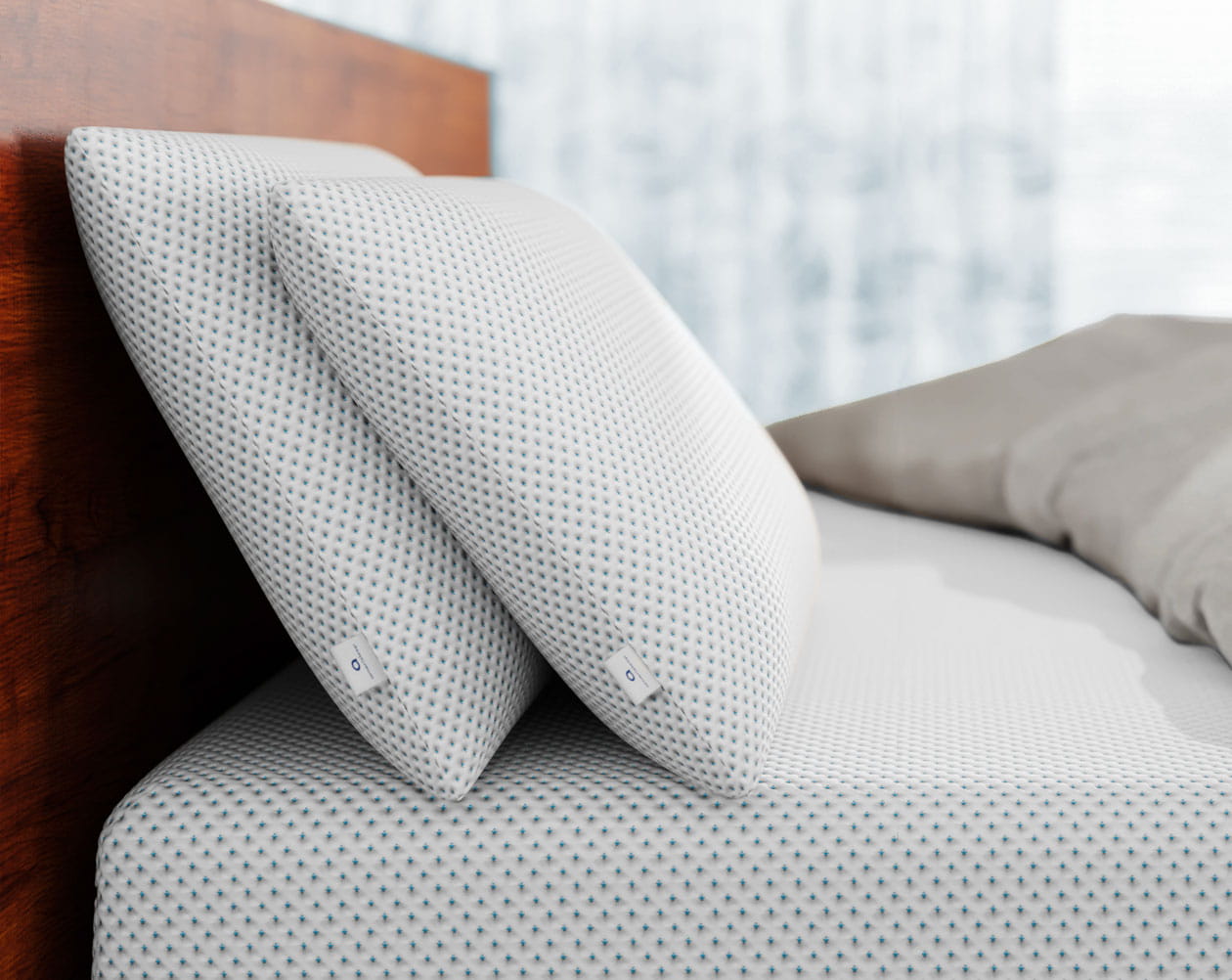Wrap yourself in luxurious comfort
Bedding
Dress up your mattress with our soft and stylish accessories.
Sheets
Cool, breathable & weightless
Lightweight material designed
to keep you cool
Premium, eco-friendly materials
Soft and stylish comfort, made
from sustainable sources
Superior moisture control
Extra-breathable fabric keeps
you dry all night
Other ways to sleep better
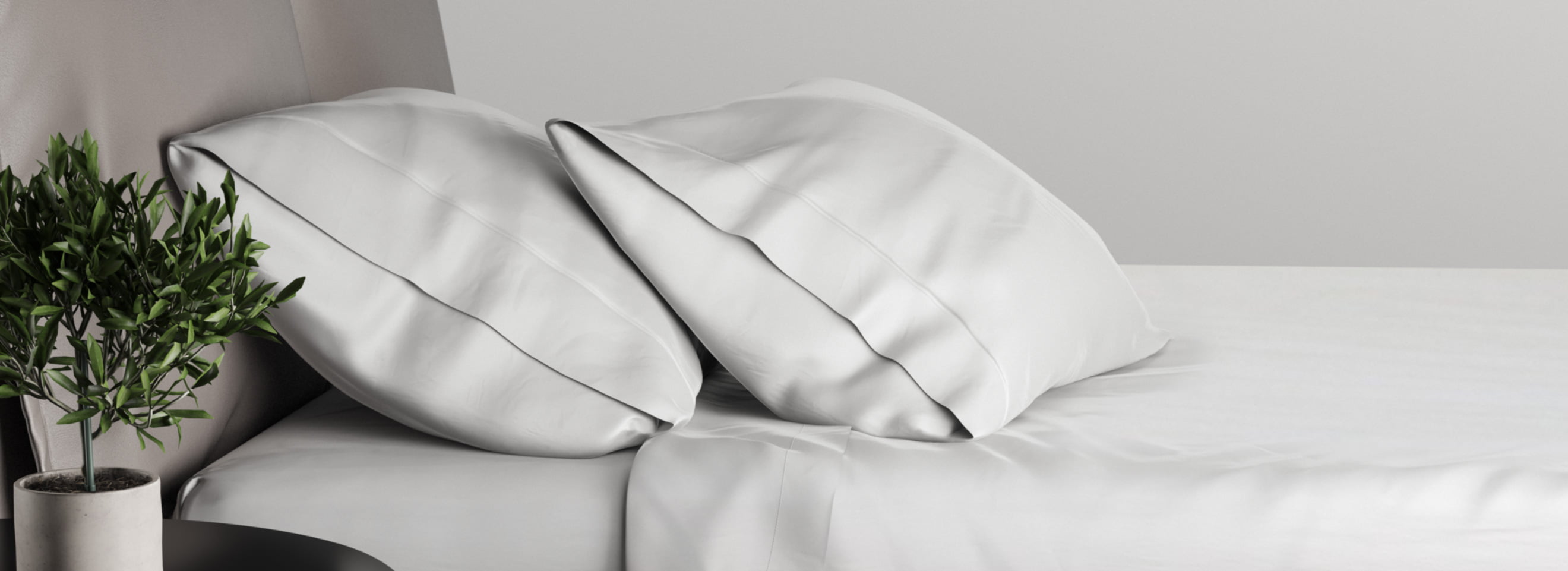
Discover the Best Best Bedding Options for You
Amerisleep customers love their mattresses so much, 98% of them would recommend us to a friend. A big reason why? We offer five memory foam mattresses that range from firm to soft. That lets you find the perfect amount of support and comfort for your personal taste and preferences. To see which of our mattresses is right for you, take a look at our comprehensive buying guide.
Frequently Asked Questions
We design all of our bedding with breathability in mind, so our sheets and comforter are ideal for hot sleepers. Both of our sheets are lightweight to prevent heat retention, but our cotton sheets are best for year-round use because cotton is insulating enough to keep you warm in colder months.
What’s even better is our Recover+ Comforter features Celliant® technology, and Celliant® is FDA-determined to regulate your temperature and promote better sleep. Whether you wake up sweaty or you struggle to stay cozy, our Recover+ Comforter can help you get a more comfortable night’s sleep.
It sure will. Our Amerisleep mattress protector is waterproof but air porous, so it shields your bed from liquid spills without causing heat retention. Our mattress protector can hold up to 1 liter of water without leaking so it keeps your bed stain-free.
All of our bedding, from our mattress protector to our Recover+ Comforter, is made with high-quality materials and designed to last. Our sheets and comforter will continue to feel soft and cozy, wash after wash.
We sell our Lift® mattress topper in two firmness options: Comfort and Support. The Comfort Lift® is a softer mattress topper designed to add some cushion to your mattress. It’s 3 inches of Bio-Pur® foam to serve as a cloud-like barrier between you and your mattress. The Support Lift® is firmer Affinity foam to enhance your bed’s responsiveness and keep you lifted. Both the Comfort and Support Lift® layers feature HIVE® technology to promote better posture and alleviate pressure points.
A bedding set usually consists of a sheet set (fitted sheet, flat sheet, and pillowcases) as well as a comforter or duvet. Some sleepers just opt for a comforter or duvet and skip the sheet set, but most people prefer to sleep with sheets because they’re cozy. Plus, duvets and comforters are hard to wash, so placing a sheet between your body and your duvet or comforter keeps those bulkier top blankets cleaner for longer.
It’s a common misconception that the, “higher the thread count, the better.” Many brands inflate the thread count of their sheets by using multi-ply yarns because they know people tend to seek out higher thread count fabrics. However, a higher thread count isn’t necessarily better, and thread count more or less serves as an indicator of the breathability of a sheet.
A sheet should have a thread count of at least 250 to be considered durable. Sheets with thread counts between 300 and 400 are both durable and breathable. Once you get into the 500+ thread count range, you’re looking at warmer, cozier sheets—the more threads per square inch, the less airy the sheet.
If you’re looking at sheets marketed with a thread count over 800, they’re likely not worth the money for two reasons. One, to achieve this high of a thread count, the brand likely used multi-ply yarns, and multi-ply yarns are more susceptible to pilling than single-ply yarns. Two, even if a brand did achieve such a high thread count using single-ply yarns, it’s likely the sheets are extremely thick and heavy, and super-thick sheets can easily cause you to overheat or feel “trapped” within the bed.
Comforters and duvets both serve as a cozy top blanket and complement a sheet set, but they differ in how they’re maintained.
A comforter is defined as, “a type of bedding made of two lengths of fabric or covering sewn together and filled with insulative materials for warmth.” Unlike duvets, comforters don’t come with a removable cover, as many of them have fun designs to fit with different bedroom decor. When tasked with cleaning your comforter, you’ll have to put the whole thing in the washer or have it dry cleaned; and for many, this becomes burdensome.
Duvets and comforters only differ slightly, so it’s not uncommon for some to use comforters as duvets. Shoppers who get tired of their comforter but aren’t looking to invest in a whole new bedspread can buy a duvet shell and put it over their comforter. Doing this not only works to change up your bed set’s appearance, but it also protects your comforter from spills and stains.
When shopping for the right bedding, think about how cold or warm you sleep, the size of your mattress, and your budget.
If you’re a hot sleeper, breathable sheets are a must; but if you live in a colder climate, you may prefer thicker flannel sheets.
When buying sheets and mattress protectors, you’ll notice they’re sized the same as mattresses, so it’s easy to find the right size to pair with your bed. However, it’s not as easy when it comes to buying comforters and duvets. These are often available in sizes like Full/Queen and King/Cal King because they’re big enough to work for two mattress sizes.
To find the best comforter or duvet to go with your new bed, measure the size of your bed and how tall it is from the floor, and then look at the dimensions of the bedding. If you want something that drapes, you’ll need to find something larger; but if you’re worried about a comforter dragging on the floor, find something smaller.
Comforters available in the non-standard Full/Queen and King/Cal King sizes vary in dimensions, meaning one Full/Queen duvet may be larger than another. You’ll have to read the fine print on each bed set to find the right one.
While you don’t need a mattress protector, we highly recommend one. Mattresses are an investment, and we generally look for ones with good warranties. However, warranties become void if a bed is stained or soiled. What good is a lengthy warranty if it doesn’t apply to your mattress? If you’re worried about maintaining warranty coverage, you’ll want a mattress protector.
Mattress protectors prevent sweat, dirt, and other germs from coming in contact with your mattress cover. When searching for a mattress protector, we recommend finding something waterproof. Waterproof mattress protectors prevent liquid spills from penetrating the bed’s surface and causing damage.
